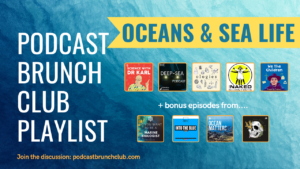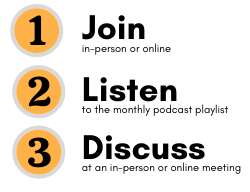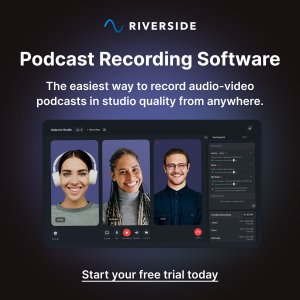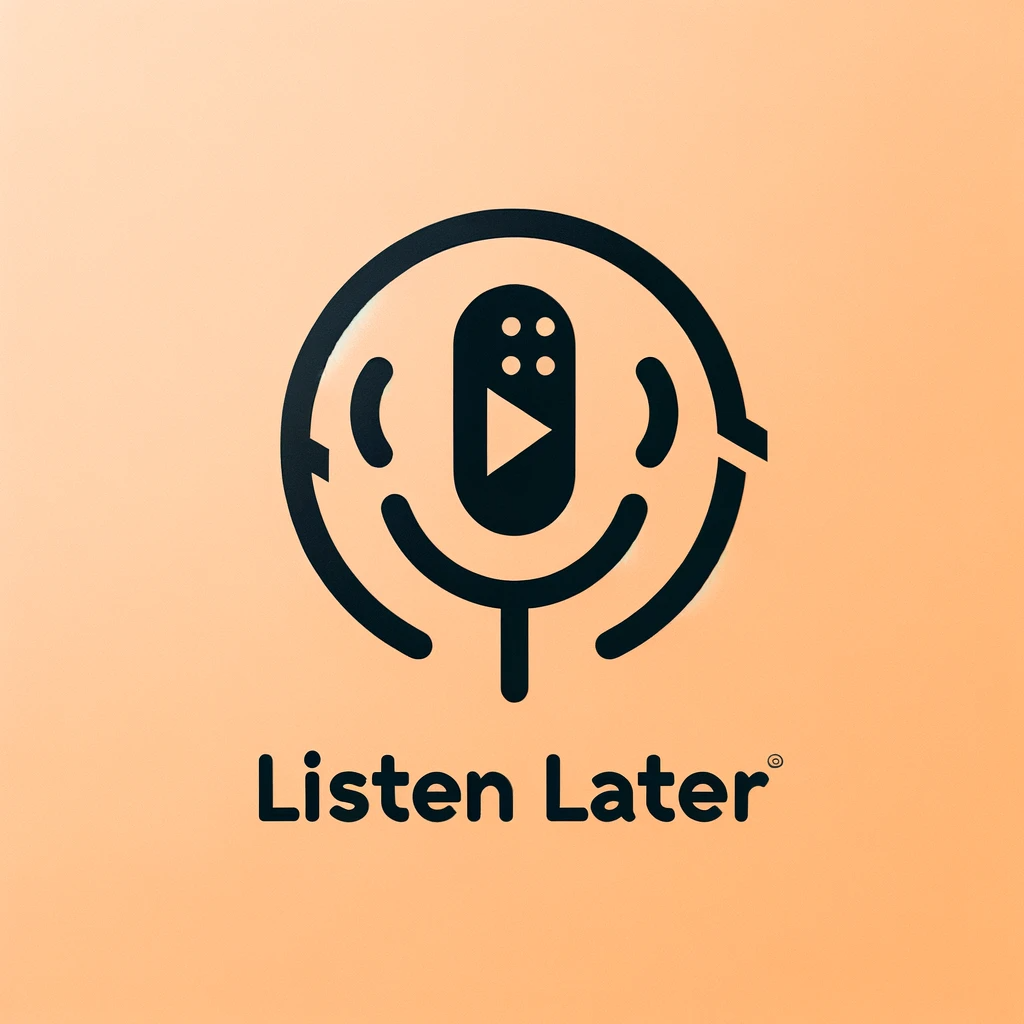OCEANS & SEA LIFE: June 2024 podcast playlist


Humans are captivated by the oceans for a multitude of reasons, both tangible and intangible. Firstly, the sheer vastness of the oceans, covering over 70% of the Earth’s surface, evokes a sense of awe and wonder. They represent the last frontier on our planet, holding mysteries and unexplored depths that intrigue our adventurous spirit. Moreover, the oceans harbor a breathtaking diversity of life, from the smallest plankton to the largest whales, showcasing the beauty and complexity of the natural world. Beyond their ecological significance, oceans have also shaped human history, serving as highways for trade and exploration, and inspiring countless myths, legends, and works of art. In their ever-changing moods, from tranquil calm to raging storms, oceans remind us of the power and unpredictability of nature, stirring our imagination and fueling our desire to understand and protect these magnificent realms. So, with this playlist, let’s dive deep into the mysteries and wonders of our planet’s vast oceans.
This playlist was curated by Maree, librarian extraordinaire and leader of our Northern Virginia chapter, with help from Maria, chapter leader of our chapter in Tartu, Estonia.
Podcast Playlist on OCEANS & SEA LIFE
Get the full playlist on your podcast player of choice using these platforms:
| This Month’s Podcast Playlist | Running List of PBC Podcast Playlists |
| Listen Notes | Spotify | Listen Notes | Spotify |
Dr Karl Podcast: “Coral Reefs, Bleaching & Marine Biology” (October 2022, 39 min)
What is Coral Bleaching? How do Jellyfish move? Is La Nina affecting Coral Reefs? Dr David Wachenfeld, Chief Scientist of the Great Barrier Reef Marine Park Authority, and Dr Karl answers these questions and more.
The Deep-Sea Podcast: “PRESSURISED: 035 – Shipwrecks with Leighton Rolley and Lori Johnston” (May 2023, 30 min)
We all know what shipwrecks are but do you know how to find them? We talk with Leighton Rolley, an expert in researching, discovering and documenting shipwrecks. And we don’t stop there. Our second guest, Lori Johnston is a microbiologist whose research has focused on the fascinating structures of rusticles: the rusty icicles that hang from shipwrecks like the Titanic.
Ologies: “Oceanology (THE OCEAN) with Ayana Johnson: Encore Presentation” (August 2020, 1 hr 21 min)
With some fresh updates, ocean and policy expert Dr. Ayana Johnson guests in an encore presentation of a fan favorite episode. Hear updates from her, learn about her new podcast “How to Save a Planet,” and what she’s been up to since this episode originally aired in 2018. Are plastic straws really that bad? What’s the oldest message in a bottle? Any scuba vs. snorkel strategies? Does sunscreen kill coral? Can we reverse ocean warming in our lifetime? Alie struggles with finding a balance between the wonders and the bummers, and in the first 20 or so minutes, we’ll learn weird ocean trivia, why we love the sea, and facts about the ocean’s depths and beauty. Then, we get to the sad stuff: ocean health, climate change, acidification, pollution, policy and what we can all do.
The Naked Scientists Podcast: “A deep dive into oceanography” (December 2022, 31 min)
We’re taking a look at our planet’s oceans, and seeing how and where the important work into studying our seas takes place, as well as finding out how the data collected by marine expeditions translates to research that informs our climate and conservation efforts.
We The Children – Kids Talk Climate Solutions: “Hope Rising: Youth Empowerment and Ocean Restoration with Philippe Cousteau” (April 2024, 37 min)
Join Zach and environmental advocate Philippe Cousteau in a captivating discussion on the urgent role of ocean restoration and the power of youth activism in environmental conservation. Philippe shares innovative techniques for coral restoration that have transitioned from experimental stages to significant global projects aimed at rebuilding healthy marine ecosystems. Zach and Philippe also talk about the pervasive issue of plastic pollution, discussing both its catastrophic impacts on marine and human life and the solutions that organizations like EarthEcho are spearheading to mitigate these effects.
Bonus podcast episodes:
- To Dive For: “Episode 8 – Taking Care of Fishness: Aquarium Curation with Brittanie Delorit” (April 2023, 1 hr 1 min)
In this episode, you’ll learn all about what it means to be a curator of an aquarium, how to work your way up in this fishy field, what its like to be a young female curator, Brittanie’s favorite fish and marine species, and all of the incredible things she’s been a part of through the years. Join us in celebrating her accomplishments, and laughing with her at the sometimes crazy days in the zoo and aquarium life. - Ocean Matters: “Turtles – Survivors, Navigators, Voyagers” (October 2021, 29 min)
Oceanographer Helen Czerski will be swimming with Earth’s turtles, meeting the different species, spying on their lifestyles and seeing the ocean through their eyes. How do they manage their incredible feats of navigation? And what do we need to do to make sure that these fabulous animals sail with us into the ocean’s future? - NOC Into the Blue Podcast: “S1 Ep7: How the Challenger Expedition Paved the Way for Modern Oceanography | Dr John Gould, Victoria Ingles and Dr Alejandra Sanchez-Franks” (October 2022, 35 min)
Travel all the way back to 1872 to recap on one of the most important scientific expeditions of all time onboard HMS Challenger! Join Dr Alejandra Sanchez-Franks, Dr John Gould and Victoria Ingles as they discuss how it’s discoveries still play a part in marine science to this very day. - So You Want to Be a Marine Biologist: “74. Winnie Courtene-Jones, PhD: Hermit Crab Battles, Dolphin Research, and Plastics in the Trenches” (February 2022, 56 min)
Winnie Courtene-Jones is a researcher at the University of Plymouth in their International Marine Litter Research Unit. We hear from Winnie about her volunteer position studying dolphins off the coast of Wales and she shares her graduate research of, essentially, watching hermit crabs duke it out, and how she definitely wasn’t going to get PhD. Until she did. She also explains what being self employed in the marine science means. Winnie’s research has taken her all over the world, and has found plastic in some surprising places- including over a mile beneath the ocean’s surface.
Conversation Starter Questions:
- Do you have any memorable experiences with the ocean or the sea that influenced your perspective on marine life?
- Did any of the podcasts change your understanding of the ocean and its ecosystems?
- Marine biologist or marine archeologist? Did any of the marine professions discussed in the podcasts appeal to you?
- Was there any story that gave you optimism about the future of our oceans?
- Did any of the podcasts inspire you to take action or change any habits related to ocean conservation?





